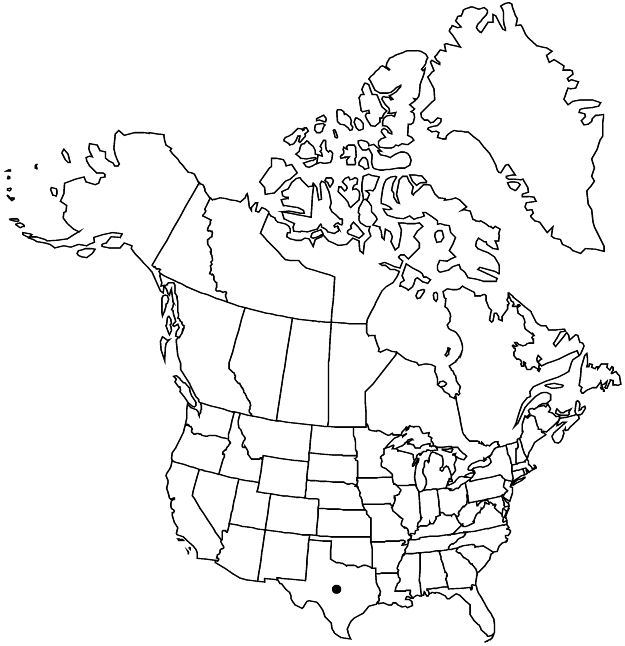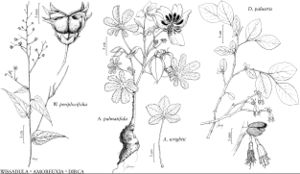Wissadula periplocifolia
Enum. Pl. Zeyl., 27. 1858.
Plants widely branched, 1–2 m. Stems slender, stellate-hairy, hairs often stipitate (especially on younger growth). Leaves distalmost subsessile; stipules subulate, 4–5 mm; petiole 1–5 cm, reduced distally, 1/4–1/2 length of blade; blade markedly discolorous, ovate-triangular, 4–11 cm (reduced distally), base shallowly cordate, margins straight, apex acute. Inflorescences open panicles, ± ebracteate. Pedicels 1.5–5 cm. Flowers: calyx 1/2-divided, 2.5–3 mm; petals yellowish or white, sometimes with dark red basal spot, 3–4 mm. Schizocarps minutely puberulent; mericarps 4 or 5, 5–6 mm. Seeds 2.5 mm, sparsely to densely hairy. 2n = 14.
Phenology: Flowering year-round.
Habitat: Shrublands, disturbed vegetation
Elevation: 10 m
Distribution

Tex., Mexico, West Indies, Central America, South America, s Asia, Africa.
Discussion
In the flora area, Wissadula periplocifolia has been found only in Cameron County.
Selected References
None.
